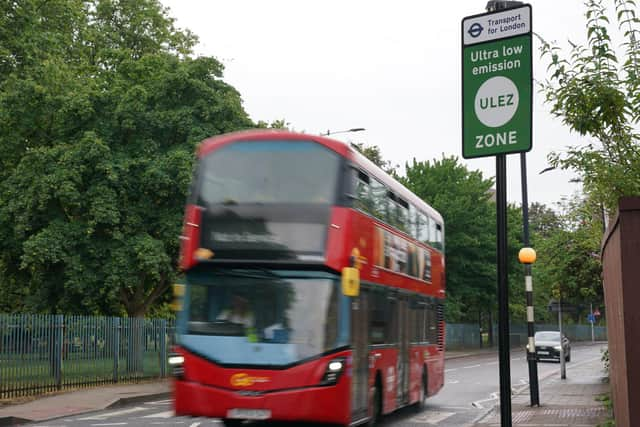We’re all beginning to find that it’s expensive being environmentally friendly - Andrew Vine
And the unavoidable fact is – again in common with an overwhelming majority of people – that I can’t afford it. This is the dilemma for millions of us who accept the need for urgent action on the climate and are more than willing to do all we can to play our part. Much as we’d like to, taking the actions being proposed as the most effective are beyond our means.
In my case, replacing the combi gas boiler in my smallish home with a heat pump would cost at least £7,000 according to the two reputable firms I’ve consulted. That compares to about £2,500 for a new boiler.
Advertisement
Hide AdAdvertisement
Hide AdBut that’s not all. Installing a water tank to make the system work and replacing all the radiators with the much larger ones necessary to provide the same level of heating as gas would add at least £3,000. So a new system would cost upwards of £10,000, or four times a like-for-like boiler replacement.


Then there’s an electric vehicle. Touring dealerships with a friend who is keen to go green when he replaces his petrol hatchback has been an eye-opener.
For a decent second-hand electric car – a new one is impossibly expensive – there wouldn’t be much change out of £20,000.
There’s the £30,000 and the only way I could possibly raise that would be to remortgage the house, which is out of the question at current interest rates.
Advertisement
Hide AdAdvertisement
Hide AdBesides, it would make years of full-time work towards calling the place my own feel wasted.
So it’s going to be gas and petrol for the foreseeable future, as it must inevitably be for countless other people, especially those households barely able to pay their bills, let alone contemplate spending thousands they don’t have on saving the planet.
That was underlined at the weekend by the boss of Britain’s national gas network, Jon Butterworth, when he said that heat pumps were affordable only for the privileged and many hard-working households were going to struggle to stay warm in the years ahead, especially if a proposed ban on gas boilers from 2035 goes ahead.
The dawning realisation that going green is going to present millions with bills they cannot afford is starting to make the two main political parties look distinctly jumpy.
Advertisement
Hide AdAdvertisement
Hide AdLabour lost the Uxbridge by-election two weeks ago because of public opposition to new charges on driving older cars imposed by London’s mayor, Sadiq Khan, which will hit the poorest people hardest.
And Rishi Sunak is plainly pitching for the votes of drivers frustrated and angry at being blamed for destroying the planet by announcing a review of low traffic neighbourhoods aimed at discouraging people from using their cars and switching to public transport instead.
That might work if the public transport network was fit for purpose, but as we know to our cost in Yorkshire, it isn’t and nobody rational could blame anyone for using their car to get to work or a hospital appointment instead of waiting in vain for a cancelled train or a bus service that runs once an hour if they’re lucky.
The environmental groups which warned Mr Sunak at the weekend that they will not allow him to use the climate as a “political football” in the fight for votes at the next election are to a degree missing the point.
Advertisement
Hide AdAdvertisement
Hide AdTheir focus shouldn’t be on the Prime Minister, or Sir Keir Starmer, but on finding a balance between what is achievable and affordable in tackling climate change for tens of millions of working people whose finances are already under immense pressure, or pensioners on fixed incomes who cannot meet substantial new costs simply to stay warm in winter.
Dictating how they must heat their homes or make the journeys they need to is pointless if they cannot afford the means to do so. All that will do is breed public resentment, or potentially open the door to fringe political parties of climate change deniers who win votes by pledging to abandon environmentally-friendly policies.
There is no lack of public support for action on the climate, especially amongst the young, but a gap is opening up between what we are all being told is necessary and the practicalities of everyday life.
Whoever forms the next government needs to start closing that gap.